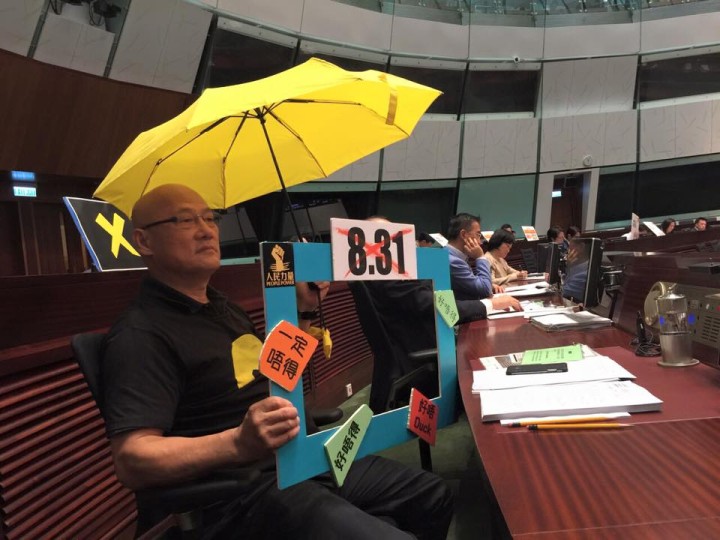“For Hong Kong’s sake get on with the real job” – this could have been the title and sub-title of this mainstream newspaper editorial, but no, it was: “Legco must pass reform package for 2017 chief executive election.” (South China Morning Post (SCMP) today Thursday April 23,(2015).
According to the content of the editorial, “Hong Kong’s pursuit of democracy has entered a crucial stage. After almost 18 months of heated debate, the long-awaited reform package for the chief executive election in 2017 was finally unveiled yesterday. The details, unsurprisingly, dovetail with what Beijing had already decided last August. Imperfect as it is, the proposal is still a step forward.”
This means 10 candidates will be allowed to come forward for consideration by the future nominating committee though under a threshold lower than that existing for the post of the chief executive. However, this means only two or three candidates who secure at least 50 per cent support from the committee at the second stage will advance to front a popular vote. The group categorised in the territory as ‘the pan-democrats’ maintain that the restrictions do not give voters a proper choice and they have chosen to no-vote the package.
This group, spoken of as the opposition camp, had hoped to make use of the Occupy protests and international pressure to push Beijing for more concessions. But as the outcome indicates, Beijing is unmoved. But Beijing has always made it clear that the framework will not be changed for this coming election. As the vote in the legislature draws near, the adverse positioning only increases the divide on the issue in Hong Kong.
“Under the proposal, over five million citizens will be eligible to vote in the 2017 chief executive election for the first time. This is undoubtedly an improvement from the existing system that confines the ballot to the 1,200-member Election Committee,” the SCMP editorial states.
The government hopes public opinion can sway at least four of the pan-democrats over the next two months and to that end the chief executive and other senior officials took to the streets yesterday to entice voters. Opinion polls have shown that over 50 per cent of the public accept Beijing’s framework. For many in the territory, if the level of support remains the same, or rises, the opinion is that the pan-democrats should vote the package in.
While it is commonly accepted that one person, one vote to choose the city’s leader will be a milestone in Hong Kong’s democratic development, a lesser sized body of voters don’t see why the position of Chief Executive, on par with the old style colonial governor, need be such an important issue – after all his role is more of a spokesperson than a ruler. All this fuss resulting from the stance of the pan-dems could be seen as a decoy. The ordinary matters that directly affect the man-in-the-street are being sidelined. What Hong Kong needs is more grassroots participation in decisions at the local levels of the districts. That can take place and indeed does, under the present system – so why all the fuss?










